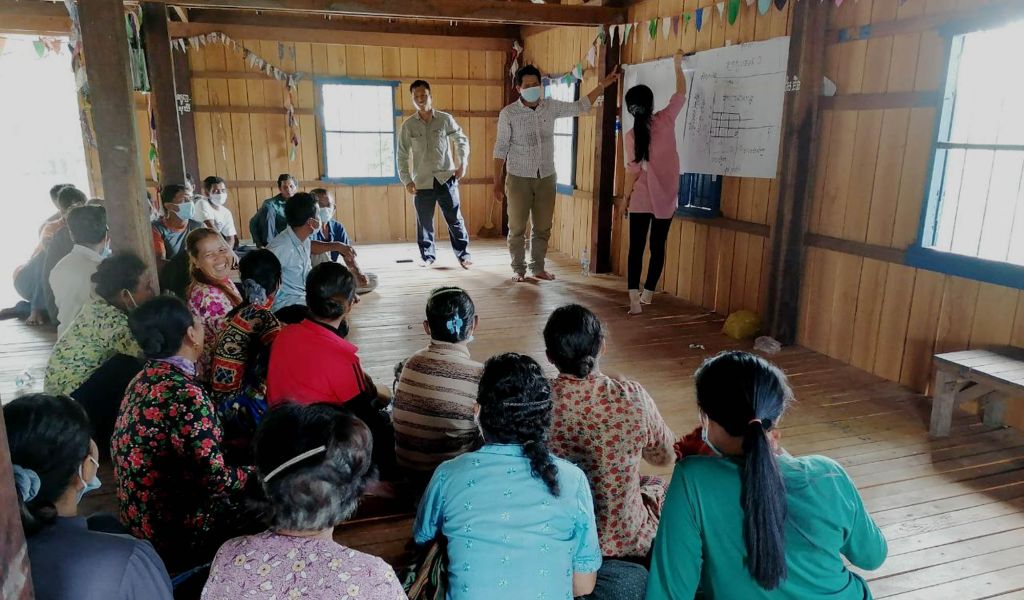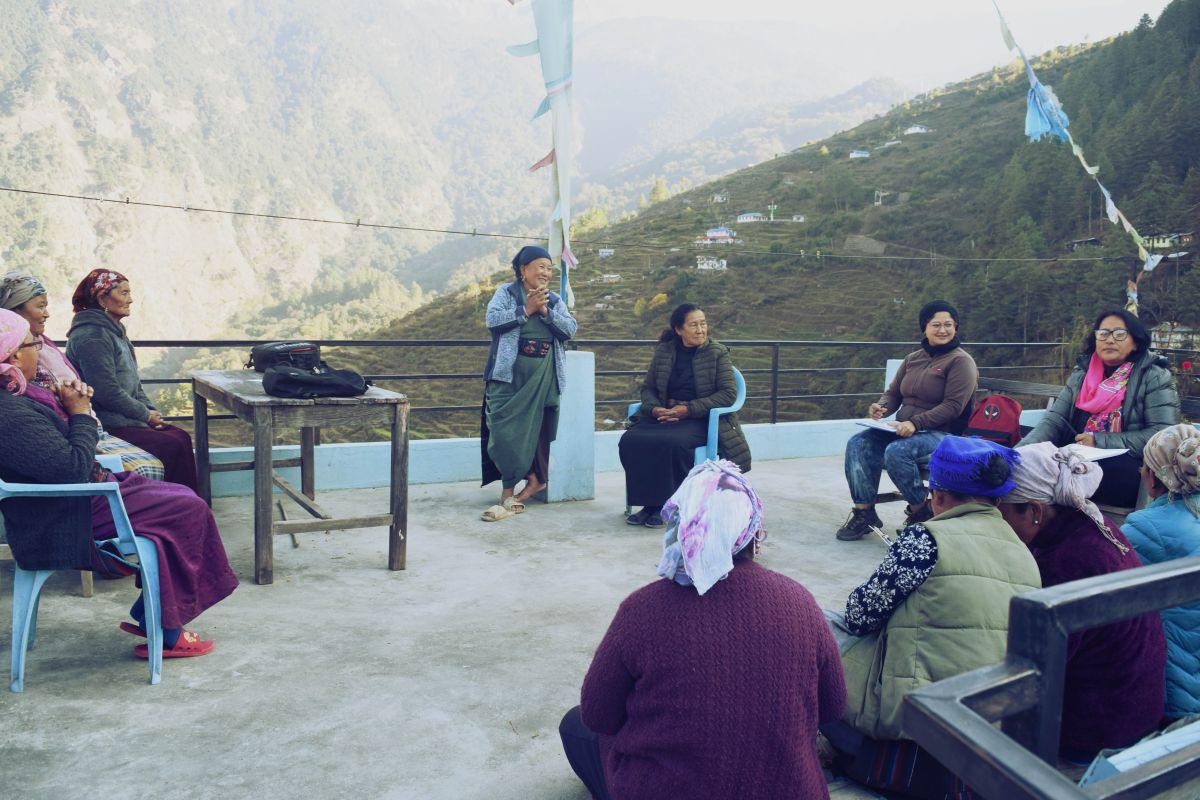When the process is the product

In rural areas and villages across Southeast Asia, women depend on forest products for food, fuel, medicine and income. As RECOFTC’s focal point on gender equality and social inclusion, I have seen firsthand the critical role women play in forest management.
Governments and local, national and international organizations also recognize this fact and have strived to make gender a priority issue in sustainable forest management. Despite these efforts, the forestry sector is still heavily dominated by men, who make important decisions that ultimately affect women’s ability to contribute to their families’ well-being.
In early 2022, I helped manage a RECOFTC-organized series of 10 research studies carried out in 18 sites in Cambodia, Indonesia, Lao PDR, Myanmar, Nepal, Thailand and Viet Nam.
The research is a product of the Regional Customary Tenure Alliance, a partnership funded by the Mekong Region Land Governance (MRLG) Project and implemented by RECOFTC.
The studies documented the legal frameworks and customary practices that affect indigenous and ethnic women’s rights to access and manage forest resources and create restrictions on those rights. The studies provide unique perspectives into customary and statutory tenure and how the two models interact. They illustrate how traditional gender roles influence women’s customary tenure rights in ways that are common to several of the countries. They also highlight issues that need further investigation.
The studies formed the basis of a new report titled “Gender, tenure and customary practices in forest landscapes,” as well as ten informational briefs from field studies in each of the seven countries.
The informational briefs offer site- and country-specific perspectives. The report provides a series of conclusions and recommendations that arose from the ‘snapshots’ of the indigenous and ethnic communities that the research investigated. Each of the recommendations could apply equally to communities and countries not represented in the studies.
The findings and recommendations resulting from the studies no doubt will be valuable for governments that want to improve gender inclusiveness in the forestry sector.
But from my standpoint as a social inclusion and gender equality focal point for RECOFTC, the process was as every bit as important as the product. Or looking at it another way, the process of carrying out the research was also a product.
That process helped improve the capacity of local female and male local researchers to conduct gender action research and carry out the studies. This was a valuable outcome.
We started out by building a regional network of 10 local researchers in the research countries. We held workshops and conversation forums to equip them with the conceptual and methodological knowledge and skills they needed to lead and implement gender research.

We also held regional-level learning and knowledge exchange events that allowed participants to expand their experiences and approaches beyond their country’s focus. And we provided one-on-one mentoring support and feedback in the writing process. Helping participants learn from an expert researcher and improve the quality of their reports was very gratifying.
These newly trained local researchers are now armed with improved skills in gender and inclusion. They are better equipped to help ensure that the voices of more women from indigenous and ethnic communities are seriously considered by those who make decisions about forest landscapes.
The RECOFTC team involved in this project also found the training valuable from a learning standpoint. RECOFTC has been implementing capacity building activities for more than 30 years. This project gave us the opportunity to apply evidence-based good practices and tested approaches to build research and gender leadership capacity in the forest sector.
Building the capacity of local researchers and gender leaders requires long-term investment to yield positive and sustainable change at the individual, institutional and policy levels.
The project helped strengthen our commitment to these approaches in several important areas. These were some of the main takeaways for us:
- Initiatives should be carefully designed based on the local needs, interests and priorities.
- A deep engagement and participatory approaches are important to co-create the learning and share the knowledge exchange space.
- Coaching, mentoring and monitoring should be embedded throughout the implementation to ensure quality results.
- Flexibility is key to adjusting to local contexts and needs. For example, the RECOFTC team and the researchers redesigned the tools and methods in response to COVID-19 pandemic and to political situations.
- It is also important to enhance the skills of researchers to effectively present their research in local and English languages.
- Continuous capacity support to local researchers and gender leaders beyond the research is needed to influence institutional and policy change in gender and tenure issues.
To find out more about the studies, you can read the report and the site-specific informational briefs here.
###
Ei Ei Htwe is senior program officer for gender equality and social inclusion at RECOFTC.
RECOFTC's work is made possible with the continuous support of the Swiss Agency for Development and Cooperation (SDC) and the Swedish International Development Cooperation Agency (Sida).

